Adventists Advocate for an End to Violence in Churches and Communities Across Inter-America
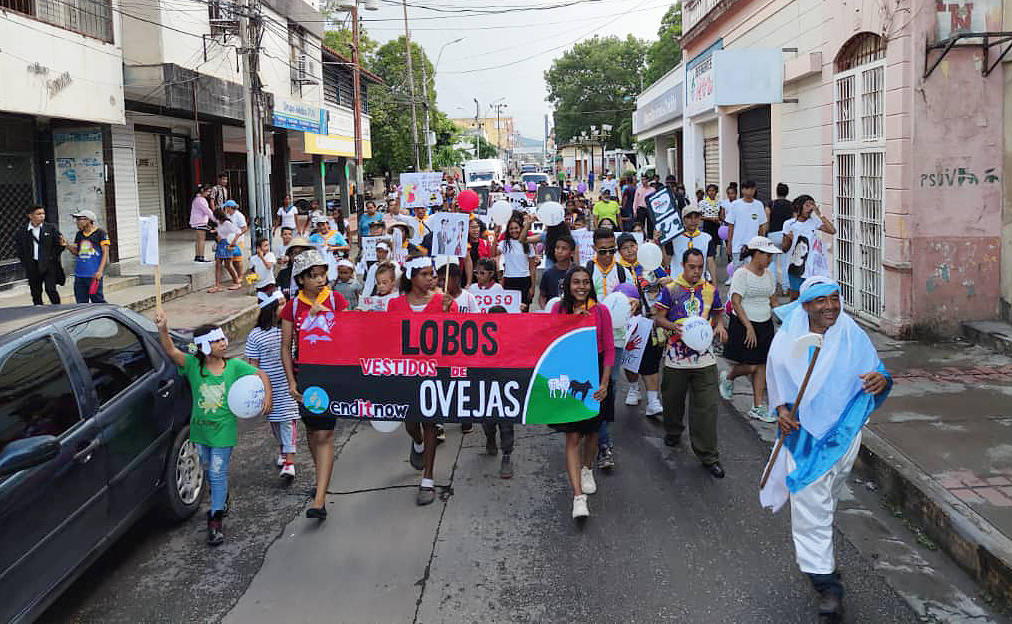
Seventh-day Adventists from eastern part of Venezuela march in tune to this year’s Enditnow campaign themed ‘Wolves in Sheep’s Clothing: when those who claim to be followers of Jesus harm others,” as they walked across streets promoting and end to violence toward women and children.[Photo: East Venezuela Union]
Thousands of Seventh-day Adventists advocated for an end to violence from church pulpits, city streets and communities during the “Enditnow” campaign held last weekend across the Inter-American Division (IAD). Enditnow is an annual global initiative that seeks to mobilize Seventh-day Adventists and other community groups to advocate for non-violence around the world.
Marchers displayed banners and posters that speak out against the prevalent violence that occurs in homes, schools, churches and many public places, particularly against women and children. The march took place throughout Mexico, Central America, the Caribbean, Colombia and Venezuela on Aug. 26-27, 2023.
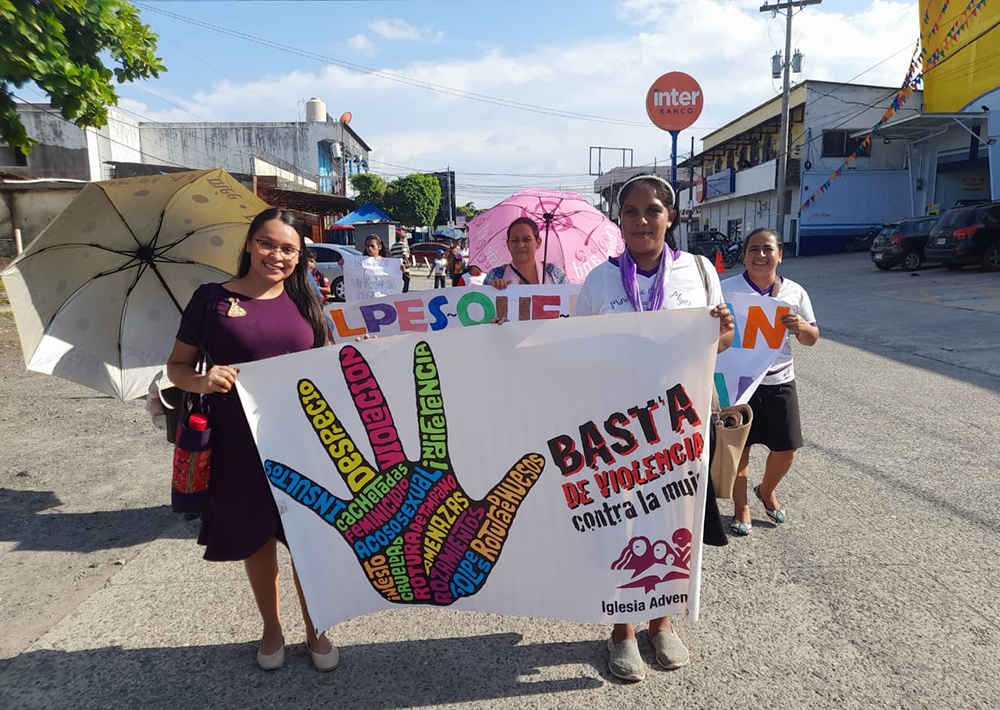
A group marches across Quetzaltenango in Guatemala with a banner describing the different forms of violence such as insults, rejection, indifference, rape, hitting, slaps, threats, murder and more. [Photo: Guatemala Union]
During this year’s focus, women’s ministries leaders preached sermons and employed resources centered around the theme: “Wolves in Sheep’s Clothing: when those who claim to be followers of Jesus harm others.”

Women in the eastern part of Venezuela take a stand against violence through communities on Aug. 26, 2023. [Photo: East Venezuela Union]
In Venezuela, church members took to the streets to let onlookers know that violence against women and children must end. “No to abuse. No to child abuse. No to abuse against women. Yes to Christ. Yes to life,” were some of the shouts heard through the streets. Churches opened their doors to the communities to speak out against violence of any form and encouraged listeners to be active in speaking up against violence in every corner of the country.
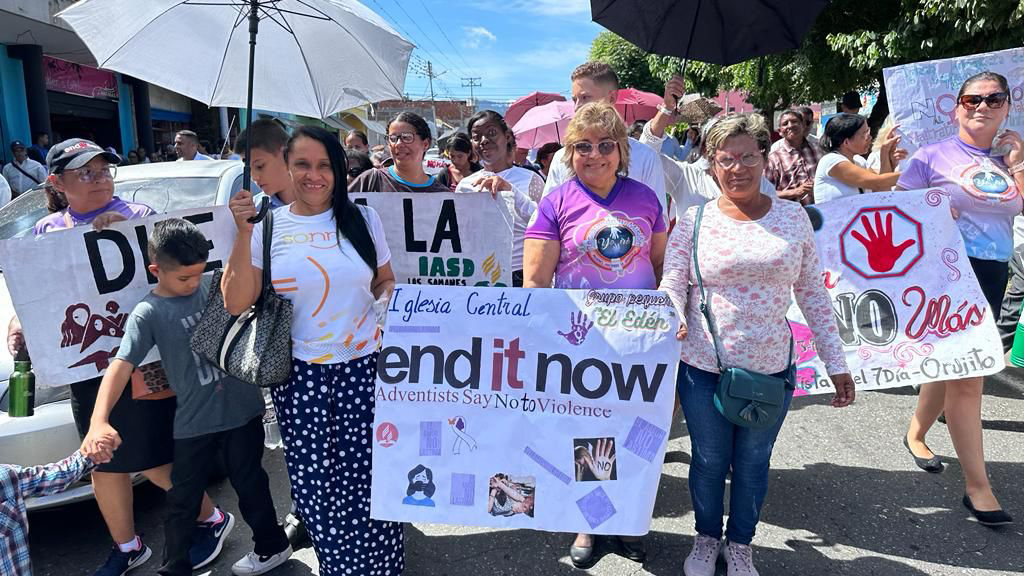
Women and children from throughout Barquisimeto, in the West Venezuela Union territory march during Enditnow awareness activities. [Photo: West Venezuela Unioin]
The initiative was covered on print and radio media across Venezuela.

Students from several Adventist Schools in Chiriqui, Panama, march with banners promoting and end to violence on Aug. 27, 2o23. [Photo: Panama Union]
“Put an end to it” was the main focus at churches across the Southeast Mexican region. “Our churches held seminars, testimonies and talks on how to respond to abuse and how to be vigilant against abuse and continue promoting awareness so that our churches can be a safe place for all,” said Silvia Arjona, women’s ministries director for the Southeast Mexican Union. Hundreds marched through the streets on Sabbath afternoon to promote more Enditnow awareness.
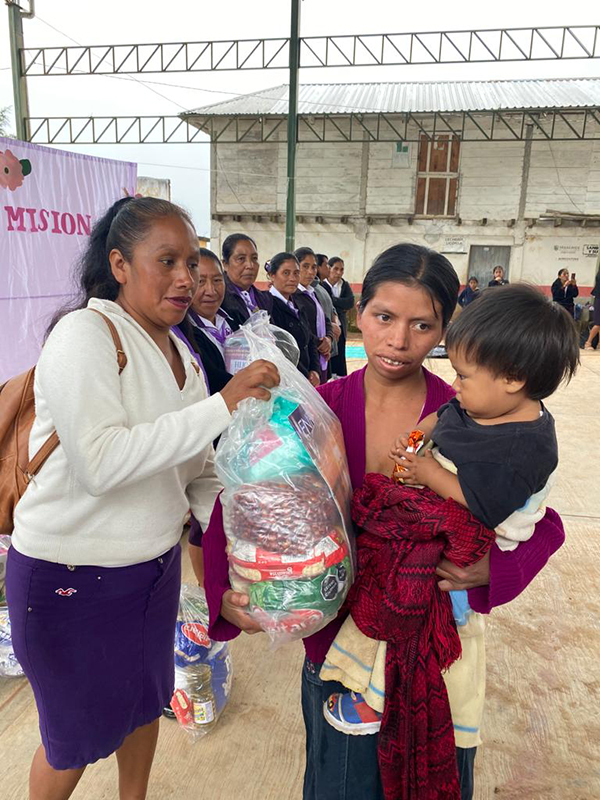
Low-income mothers receive food and clothing as part of Enditnow initiative in Chiapas, Mexico. [Photo: Chiapas Union]
Church members distributed food and clothes to low-income women with small children across communities and community plazas.
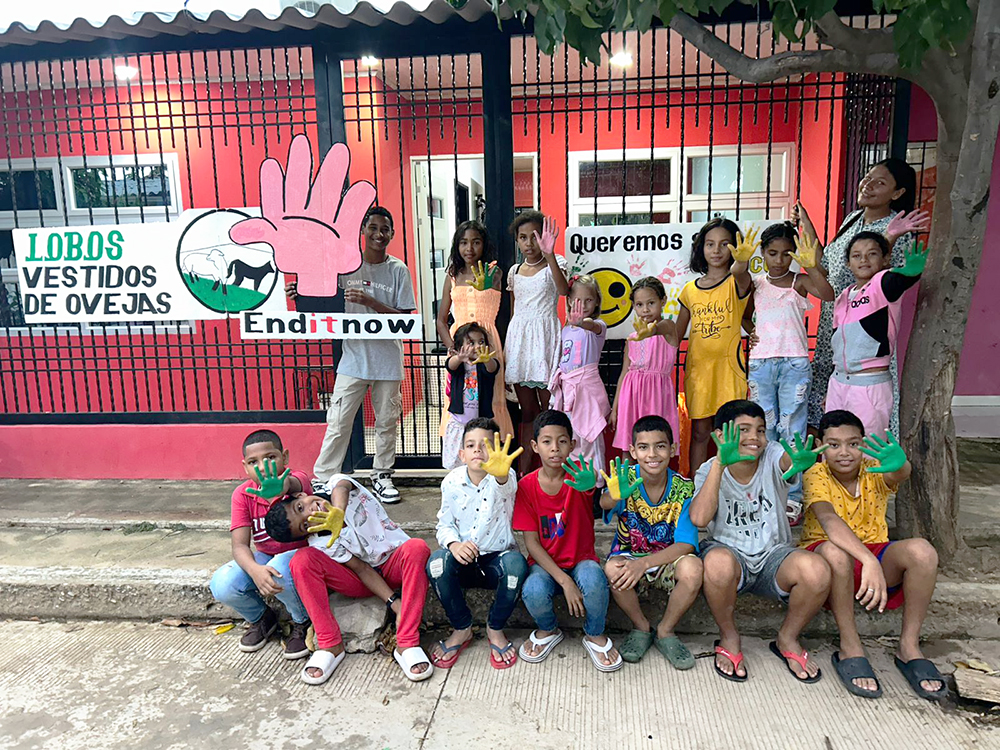
A neighborhood group of children in Guajira in North Colombia hold their hands up after learning about a “Say no to abuse” interactive activity. [Photo: North Colombia Union]
In addition, several communities were visited in which children were provided talks and interactive activities to be able to identify any form of abuse and how to speak up about it.
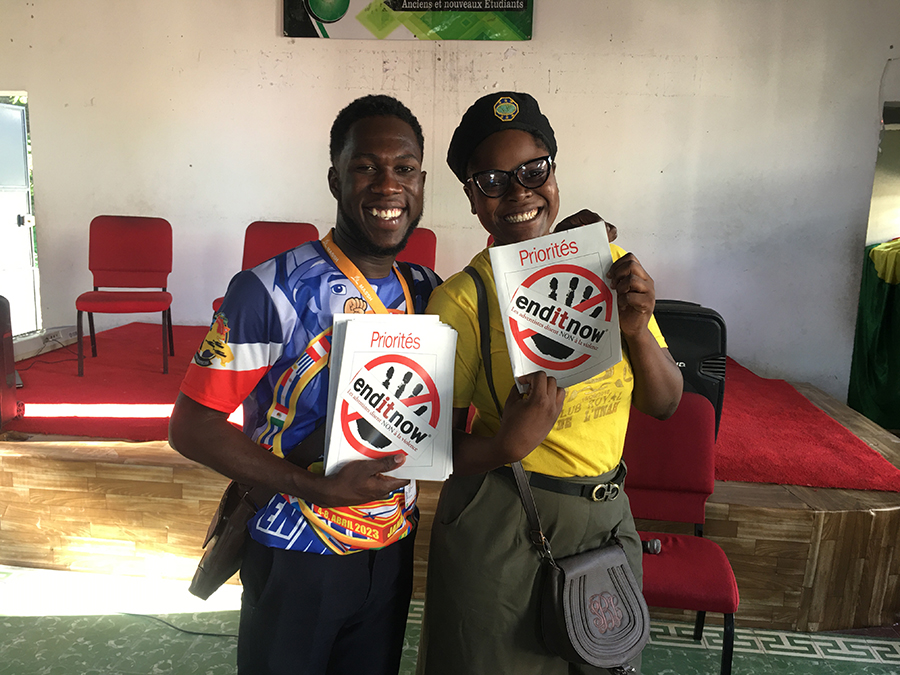
Two students from the Adventist University of Haiti in Carrefour, Port-au-rince, show off copies of Priorities magazine on Enditnow focus before distributing in nearby communities on Aug. 27, 2023. [Photo: Haitian Union]
Psychologist Laurcelie Alcimé addressed church members at Adventist University of Haiti in Carrefour, Port-au-Prince. “As soon as you identify any type of violence, whether financial, sexual or psychological, know that you’re in the presence of abuse, and you must take action, seek help and rely on your faith,” said Alcimé. “If a spouse deprives you of your funds to dominate you or tries to deceive you to appropriate, that could constitute a form of abuse. Church members distributed literature on ending violence throughout their neighborhoods on Sunday.

Anne Marie Davis (right) wife of The Bahamas Prime Minister, holds hands with women ministries leaders are they pray during an Enditnow rally in New Providence Island in Nassau, Aug. 26, 2023. [Photo: South Bahamas Conference]
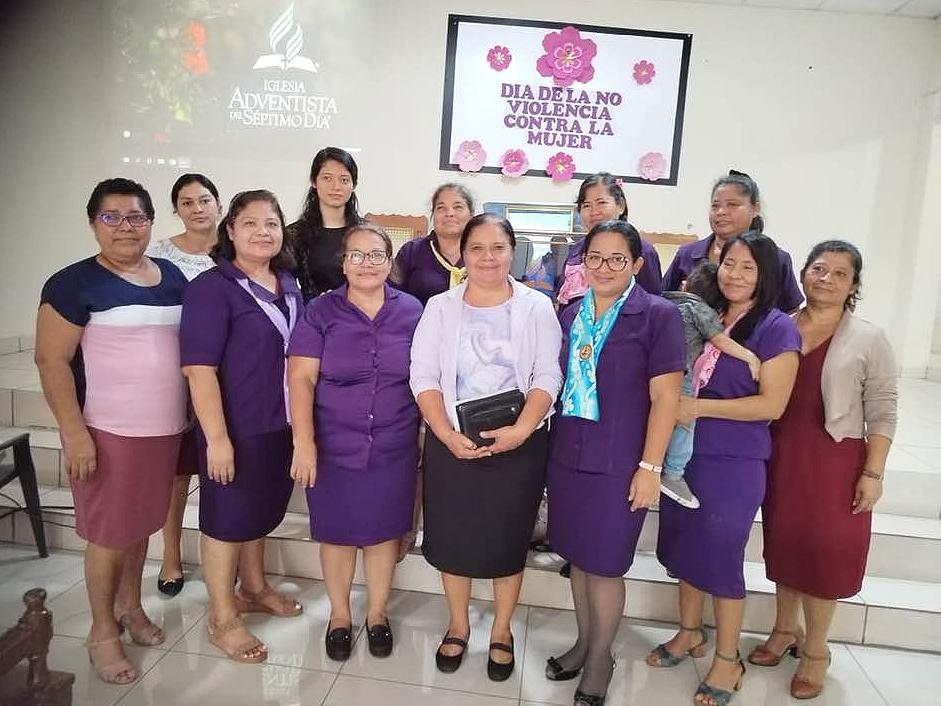
A group of women’s ministries leaders stand at the end of a special Sabbath morning program focused on this year’s Enditnow campaign in El Salvador. [Photo: El Salvador Union]

Women and young people march trough the streets of the Southeast Mexican Union march through communities with the Enditnow campaign on Aug. 26, 2023. [Photo: Southeast Mexican Union]